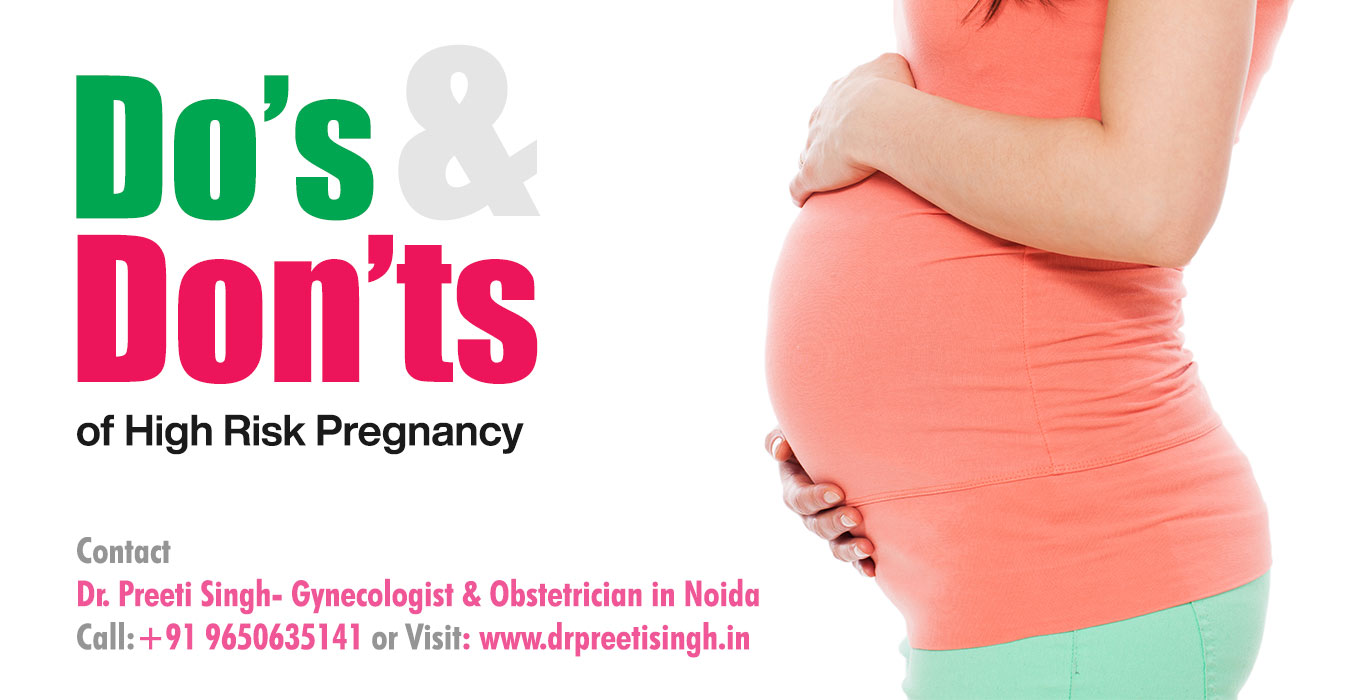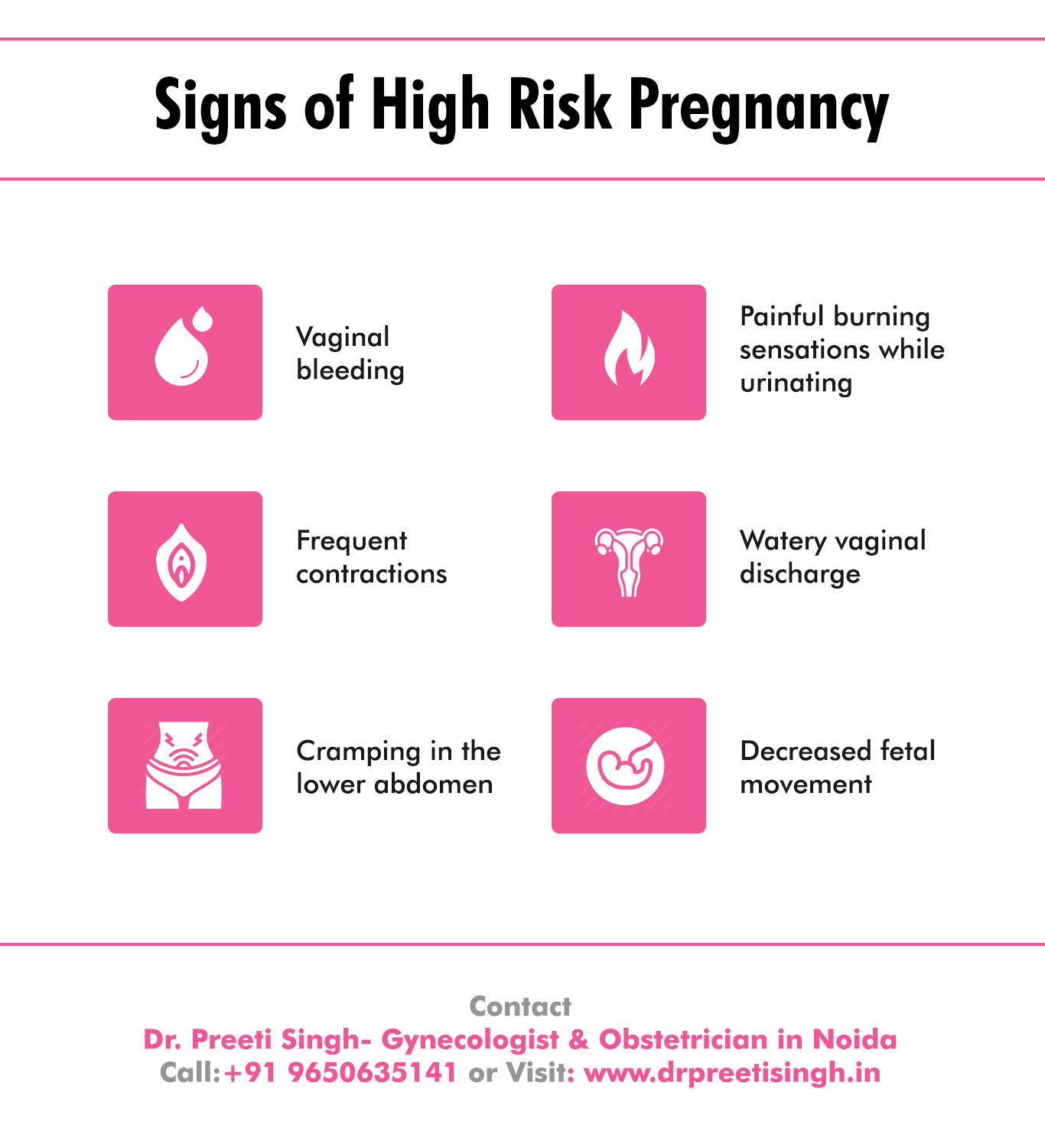Do's and Don'ts of High-Risk Pregnancy

A high-risk pregnancy can be defined as a pregnancy that threatens the life and/or health of the to-be mother or the unborn baby or both. It is important to note that some pregnancies may start with a high risk from the beginning while some pregnancies may become of high risk as the pregnancy progresses. Therefore, it is important for pregnant or to-be pregnant women to have a clear understanding of the do and don'ts of a high-risk pregnancy in order to stay protected.
High-Risk Factors include:
- Substance abuse
- High blood pressure
- Past pregnancy complications, such as premature delivery
- Cancer
- Preeclampsia
- Heavy smoking or drinking problems
- Advanced maternal age
- Blood disorders, obesity, or chronic diseases
Let us now look at ways to ensure smooth management of high-risk pregnancy (do’s and don'ts of high-risk pregnancy).

1. High-Risk Pregnancy Do’s
Get Enough Sleep
Pregnancy, undoubtedly, is a magical journey in countless ways but for some women, the pregnancy months are characterised by sleepless nights because of the growing belly, the heartburn, the pains, and the aches. It is important to have at least 8-9 hours of uninterrupted sleep. Here are some common tips to have uninterrupted sleep:
- It is essential to choose an active lifestyle. Preventing the use of electronics (especially mobile and television) before bed is highly recommended.
- It is best to avoid spicy foods as they may cause heartburn that may ruin sleep and keep you awake.
- Prenatal vitamins containing iron and folic acid should be considered if restless legs syndrome (RLS) is a concern.
- It is always a good idea to have a few candies in case nausea hits just before sleeping time.
- Avoiding caffeine after the evening is an excellent way to avoid insomnia.
- Pregnant women should try to sleep on their left side as that tends to improve the flow of nutrients and the flow of blood to the baby. Knees should be bent with a pillow between them. For extra support, tucking a pillow under the stomach may be a good idea.
- Daytime naps should be kept small.
- It is important to have dinner at least 2-3 hours before going to bed.
It is Good to Have Sex
There is a common misconception that a high-risk pregnancy has to be a sex-less pregnancy. Truth is - a regular sex life is highly recommended unless the doctor has advised against sexual intercourse or if there are specific complications. One of the biggest benefits of pregnancy sex is that female orgasms lead to calming hormones and improved cardiovascular blood flow. These advantages get passed from the mother to the baby.
It is highly essential for you to recognise the significance of communication during pregnancy sex. For this, it is important to have a detailed word with the doctor to identify the positions where the female has more control as far as the depth of penetration is concerned
Eat Smartly, Gain Healthy Weight
A pregnant woman's body requires more iron, folic acid, protein, and calcium than a woman who is not expecting. The diet of a pregnant woman should include citrus fruits, dried beans, whole-wheat pasta, enriched or fortified cereals, green leafy vegetables, milk, calcium-fortified juices, cheese, yoghurt, dried beans, meat, poultry, iron-fortified cereals, and whole grains. It is important to avoid caffeine, white tuna, orange, unpasteurised (raw) milk, and raw/undercooked meats and poultry.
It is important to achieve a healthy weight by eating healthy foods, drinking plenty of water, and following an active lifestyle.
Listen to Your Doctor
It is essential to gain invaluable insights regarding weight management from a dietitian or OB-GYN. Instructions regarding diet, sleep, lifestyle, tips and precautions, related to high-risk pregnancy should be followed. Regular visits to the doctor’s office, whenever expected or required, are essential.
People commonly ask, Is it possible to have a normal delivery in IVF? Yes, it is surely possible to have normal delivery in IVF. However, in any case, you must listen to your doctor very carefully.
2. High-Risk Pregnancy Don’ts
Avoid Drinking and Smoking
Consumption of alcohol and smoking must be avoided during pregnancy. This is because they can cause severe damage to the unborn baby including miscarriage, low birth weight, fetal alcohol syndrome, intellectual disability, illness, stillbirth, and spontaneous abortion.
Don’t Ignore Mental Health
High-risk pregnancies are characterised by bouts of anxiety, depression, and stress that may correlate with newborn mortality and morbidity. It is essential to stay calm and unaffected by stress to avoid gestational hypertension, certain birth defects, congenital malformations, low birth weight, etc.
Don’t Consume Too Much Caffeine
Consumption of excessive caffeine and energy drinks during pregnancy may increase the risk of health complications such as low birth weight or miscarriage. Daily take of caffeine should not exceed less than 300 mg/d.
Don’t Eat Raw Meat
Undercooked or raw meat should be avoided by pregnant women as it can increase the risk of toxoplasmosis, which is an infection that may result in stillbirth, miscarriage, and damage to the developing baby's organs. Moreover, all surfaces, utensils, and hands should be thoroughly washed when cooking or handling meat for a pregnant woman.
At Dr. Preeti’s Clinic, you will get the best advice and care from some of the highly experienced obstetrician-gynaecologists. We ensure a proactive plan to provide top-notch maternal care and delivery while keeping you protected at every moment. Our team ensures that there is always an open line of communication and all prenatal care appointments are conducted on time in a safe and hygienic environment so you don't have to ever lose your peace of mind.